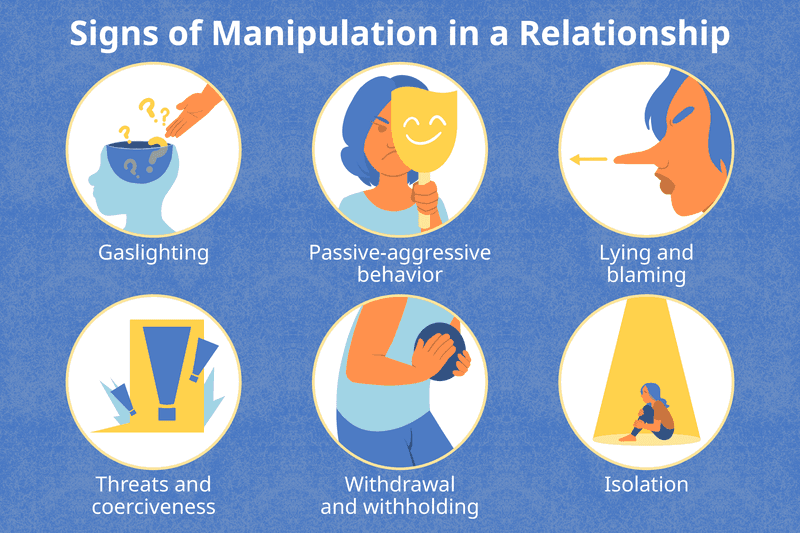In relationships, words can often reveal underlying attitudes and beliefs. Some phrases may seem harmless but can signal a lack of empathy or consideration.
This article explores 15 such phrases commonly used by husbands that may unintentionally reflect selfish tendencies. Recognizing these can help in fostering more understanding and compassionate communication in relationships.
1. “That’s just how I am.”
“That’s just how I am” often serves as a shield against change or growth. When someone uses this phrase, it’s a way to deflect responsibility for one’s actions or behavior. It implies that the person is unwilling to consider how their actions affect others.
This phrase can stifle personal development and hinder open communication within the relationship. It sends a message that change is impossible, leaving the partner to accept things as they are or move on.
By relying on this phrase, one may avoid exploring the deeper reasons behind their behavior. It becomes a convenient excuse for not addressing issues that may be harming the relationship. In marriages, where continuous growth and adaptation are essential, resorting to such a statement can be particularly damaging.
Ultimately, it closes the door to empathy and understanding, keeping the relationship stagnant and unfulfilling.
2. “You’re overreacting again.”
Telling someone “You’re overreacting again” can invalidate their feelings and experiences. This phrase dismisses the partner’s emotional responses and frames them as irrational or exaggerated. It can be hurtful, as it denies the other person’s perspective and emotions.
While everyone reacts differently, suggesting that someone is overreacting discourages open dialogue and emotional vulnerability. It can create a barrier, preventing the partner from expressing themselves freely.
The repetition of this phrase can lead to a cycle of dismissal and misunderstanding. Instead of offering support or trying to understand the root cause of the feelings, it halts communication. This lack of empathy and understanding can breed resentment and distance in the relationship.
Acknowledging your partner’s emotions, rather than dismissing them, can help in building a deeper, more trusting connection.
3. “You should be grateful I work so hard.”
“You should be grateful I work so hard” may seem like an acknowledgment of effort, but it often translates into dismissing the other partner’s contributions. This phrase implies that the speaker’s work is more valuable than anything the partner does, be it at home or in their own career.
It reflects a lack of appreciation for the mutual support and effort that a relationship requires. It can create an imbalance, where one person’s achievements are highlighted at the expense of the other’s. This disparity can lead to feelings of underappreciation and resentment.
Instead of fostering gratitude, this statement might drive a wedge between partners, making the other feel undervalued or taken for granted. Celebrating mutual successes rather than competing for recognition can enrich the partnership.
4. “I don’t have time for this right now.”
“I don’t have time for this right now” is a phrase that can halt important conversations in their tracks. While it may sometimes be true that not every moment is ideal for a discussion, consistently using this phrase can convey a dismissive attitude toward the partner’s concerns.
This statement often signals prioritization of other tasks or issues over the relationship. When used frequently, it can leave the partner feeling neglected or undervalued. It may create an impression that their needs or feelings are secondary to other matters.
In a partnership, time is one of the most valuable gifts one can give. Choosing to make time, even amid busy schedules, speaks volumes about one’s commitment to the relationship. It’s not just about having time but making time, ensuring that the relationship remains a priority.
5. “Can we talk about this later?”
“Can we talk about this later?” often becomes a placeholder rather than a genuine commitment to resolve issues. When “later” never comes, it signals avoidance rather than postponement. Over time, these promises of future discussions can erode trust and leave issues unresolved.
This phrase might initially seem like a reasonable request, especially during busy or stressful periods. However, without follow-through, it becomes a tool of deflection. The partner waiting for resolution might feel ignored or unimportant. It can lead to feelings of frustration and disconnection.
Honoring commitments to discuss matters later requires intentional effort. Setting a specific time or date reassures the partner and demonstrates a willingness to address their concerns. Consistent avoidance of these conversations can harm the relationship’s foundation, creating a divide that becomes harder to bridge over time.
6. “Why are you always so negative?”
Saying “Why are you always so negative?” can put the blame on the partner’s outlook rather than addressing the underlying issues. This phrase can be damaging as it dismisses the partner’s feelings and concerns as mere negativity.
It frames the conversation in a way that discourages open dialogue, turning the focus onto the partner’s supposed negativity rather than seeking understanding or resolution. This can make the partner feel unheard and unfairly judged.
While negativity can indeed be challenging, labeling concerns as such without trying to understand them misses an opportunity for growth and connection. Encouraging a more open and compassionate dialogue allows for a deeper exploration of the issues at hand. It transforms the conversation from one of judgment to one of mutual support and understanding.
7. “I never asked you to do all that.”
“I never asked you to do all that” can dismiss the partner’s efforts and sacrifices. This phrase implies that everything the partner has done was unnecessary or unappreciated. It overlooks the intentions and efforts behind their actions.
In relationships, partners often go above and beyond to support each other. This phrase can diminish those efforts and make the partner feel taken for granted. It suggests a lack of appreciation for the thought and care behind their actions.
Instead of dismissing the partner’s efforts, recognizing and valuing them can foster a sense of partnership and mutual support. This acknowledgment strengthens the relationship and encourages continued efforts to nurture it. By appreciating what each brings to the table, both partners can feel valued and respected, leading to a more harmonious and fulfilling relationship.
8. “I bring home the paycheck—that should be enough.”
“I bring home the paycheck—that should be enough” is a phrase that reduces the complexity of a relationship to mere financial contributions. It implies that monetary support is the sole requirement for maintaining a healthy partnership.
This statement often overlooks the emotional, physical, and mental support that both partners need to provide. It can lead to an imbalance where one partner feels that their non-financial contributions are undervalued.
In relationships, financial support is just one aspect of the partnership. Emotional and social support, shared responsibilities, and genuine companionship are equally vital. By acknowledging and valuing these aspects, couples can foster a more holistic and satisfying relationship.
Celebrating each other’s contributions beyond just financial means enriches the partnership, ensuring that both partners feel appreciated and fulfilled.
9. “You always make everything about you.”
Accusing someone of making everything about them often turns the conversation into a blame game. This phrase implies selfishness on the part of the partner, often without understanding the actual dynamics of the situation.
It can shut down meaningful dialogue by shifting the focus onto perceived self-centeredness rather than the real issues at hand. This redirection can leave the partner feeling attacked and misunderstood, leading to defensiveness rather than resolution.
Effective communication requires empathy and a willingness to see things from the partner’s perspective. By focusing on understanding rather than blaming, couples can foster a more supportive and empathetic environment. True connection comes from listening and valuing each other’s experiences, not by assigning blame.
10. “You’re too emotional to talk to right now.”
Telling someone “You’re too emotional to talk to right now” can be incredibly dismissive and hurtful. This phrase invalidates the partner’s feelings, suggesting that their emotions are a barrier to communication.
It can make the partner feel as though their emotions are wrong or shameful, discouraging them from expressing themselves. This dismissiveness can create a rift, making the partner reluctant to share their feelings in the future.
Emotions are a natural part of human experience, and dismissing them can lead to unaddressed issues and resentment. Instead of using this phrase, acknowledging the partner’s emotions and offering support can lead to more meaningful and productive conversations. Embracing emotional expression within a relationship fosters trust and deeper connection.
11. “It’s not like I’m cheating or anything.”
“It’s not like I’m cheating or anything” is a phrase often used to downplay other harmful behaviors within a relationship. By comparing actions to infidelity, it diminishes the significance of other issues that may be damaging the partnership.
This phrase can be used to justify neglect, emotional distance, or other forms of disrespect. It implies that as long as infidelity isn’t involved, other actions are permissible or insignificant.
Healthy relationships require more than just fidelity. They thrive on respect, communication, and mutual support. Using this phrase can undermine these essential elements, allowing harmful patterns to persist unchecked.
Acknowledging and addressing all types of issues, big or small, is crucial in maintaining a nurturing and respectful partnership. It’s about building a relationship where both partners’ needs and concerns are valued and addressed.
12. “I can’t read your mind.”
“I can’t read your mind” is often said in response to unspoken expectations or misunderstandings. While it’s true that mind-reading is impossible, this phrase can be used as an excuse to avoid actively listening or engaging in open communication.
It places the onus of communication solely on the partner, suggesting that they must spell everything out. This can lead to frustration and disconnect, as it ignores the need for mutual effort in understanding each other’s needs and desires.
Open dialogue and active listening are key components of a strong relationship. Instead of resorting to this phrase, encouraging more explicit communication and showing genuine interest in understanding each other can bridge gaps and strengthen the partnership. Relationships are built on shared understanding and effort, not on assumptions.
13. “You knew what I was like when you married me.”
“You knew what I was like when you married me” is often used to resist change or accountability. This phrase suggests that the partner must accept undesirable behaviors because they were aware of them from the start.
It can be a way to avoid growth and adaptation, essential components of any lasting relationship. By using this phrase, one might dismiss the partner’s concerns or desires for positive change, leading to stagnation.
Relationships require ongoing effort and willingness to evolve together. Instead of clinging to past perceptions, embracing change and seeking mutual growth can lead to a more fulfilling partnership. It’s about building a future together rather than being stuck in the past.
14. “You’re making me the bad guy again.”
Saying “You’re making me the bad guy again” shifts the focus from the issue to personal blame. This phrase can turn the conversation into a conflict rather than a constructive dialogue.
By framing oneself as a victim, the focus moves away from resolving the actual problem. It can lead to defensiveness and prevent meaningful discussion. The partner may feel blamed and misunderstood, leading to further disconnect.
Effective communication involves addressing issues without assigning blame. By focusing on understanding and resolving the concern, rather than defending oneself, couples can foster a more empathetic and cooperative environment. It’s about working together rather than against each other, building a stronger and more harmonious relationship.
15. “It’s not a big deal—just let it go.”
“It’s not a big deal—just let it go” can be dismissive of the partner’s feelings and concerns. This phrase minimizes the significance of the issue, suggesting that the partner’s feelings are unwarranted or trivial.
It can discourage open communication and prevent the resolution of underlying problems. By brushing off concerns, the partner may feel neglected or unimportant, leading to resentment and disconnect.
In relationships, even seemingly small issues can grow if left unaddressed. Acknowledging and discussing concerns, no matter how minor they might seem, fosters trust and connection. It’s about valuing each other’s perspectives and working towards understanding and resolution.
















